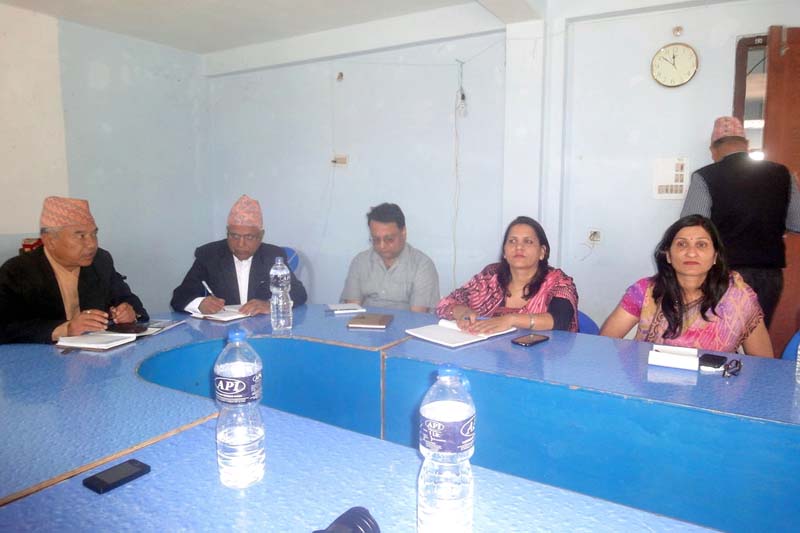Government fails to amend TRC Act to facilitate transitional justice process
Kathmandu, December 3
Despite the tall promise that the government would resolve the remaining issues of the peace process, it has failed to introduce the TRC Act amendment bill in the Parliament to facilitate the process of resolving insurgency-era rights violation cases.
Resolving outstanding transitional justice issues through the Truth and Reconciliation Commission was one of his top priorities when Prime Minister Pushpa Kamal Dahal was sworn in in August.
The government had prepared a preliminary draft of the bill, but multiple stakeholders, including some ruling parties and the TRC itself were said to have reservations.
Attorney General Raman Kumar Shrestha accepted that the government couldn’t push the bill forward due to the ‘interests of various groups’, who, according to him, ‘don’t want to see an end to the protracted political transition in Nepal.
“There are such forces as political parties, civil society, the court, and so-called intellectuals, who don’t want war-era cases to be resolved,” he told The Himalayan Times.
Shrestha said he had prepared the draft bill two-and-a- half months ago and shared it with relevant stakeholders, including the Office of the Prime Minister; the Supreme Court; the Ministry of Peace and Reconstruction; and the Ministry of Law, Justice and Parliamentary Affairs. “We revised the draft after taking feedback from the stakeholders, but nothing came of it,” Shrestha added.
It is learnt that a faction of ruling parties, including the Nepali Congress was against the draft, which has delisted ‘crime against humanity’ from the list of heinous crimes.
A minister representing Nepali Congress said his party couldn’t fully back the draft as it was framed without consulting or taking into account the sensitivities of relevant stakeholders, including the security forces, conflict victims as well as the ruling parties.
Crime against humanity is incorporated as a heinous crime in the existing TRC Act, along with rape, killing, torture and forced disappearances.
Talking to The Himalayan Times, Minister for Law, Justice, and Parliamentary Affairs Ajay Shankar Nayak also hinted at some differences among the ruling and other parties, but said the bill would be introduced in the House after taking all sides on board and incorporating the international principles of transitional justice process.
In a recent meeting with PM Dahal, human rights defenders, civil society representatives and conflict victims expressed serious concern about the move to delist crime against humanity from the list of ‘heinous crimes’ in the proposed amendment bill of the TRC Act.
At that time, Dahal had also said that his party’s efforts towards early amendment of the TRC Act was being thwarted by ‘some internal and external’ factors. The prime minister, however, didn’t identify these factors.
Meanwhile, TRC Chairman Surya Kiran Gurung has threatened to quit his post if the government fails to create congenial environment for the TRC to function, including bringing necessary laws to discharge its functions.
TRC had written to the government to amend its existing act in December last year so as to make it compatible with the Supreme Court’s verdict and international norms and principles.






